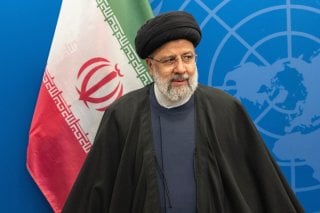Iran and Turkmenistan’s Relationship Steadily Improves
Despite sharing a long border, Tehran-Ashgabat ties are rarely discussed when evaluating Iran’s regional strategy.
Although neither Iran nor Turkmenistan’s government viewed the Taliban’s return to power as a positive development, Tehran and Ashgabat seem committed to making the best of the situation. It is important to note how, during the Taliban’s 1996-2001 rule, Iran and Turkmenistan approached Afghanistan’s Islamic Emirate regime differently. Whereas Iran was on hostile terms with the Taliban, having nearly gone to war with Afghanistan’s reactionary government in 1998 and backing the Taliban’s ouster in 2001, Turkmenistan’s approach differed. Although Ashgabat never formally recognized the Taliban, the Islamic Emirate had a representative office in Turkmenistan during the 1990s. Today, just like in the 1990s, Turkmenistan enjoys a UN-recognized neutral status, which the country has leveraged to keep Ashgabat open to cooperation with different Afghan actors.
“Iran seems to have grudgingly taken a page [from] Turkmenistan’s playbook from the late 1990s. The Taliban are back in Afghanistan and there really is not much that can be done about that, especially now that they have all those American weapons they captured when they returned to power. So better, for now, to just try to deal with the Taliban and avoid unpleasantness, such as what occurred along the Iranian-Afghan border in May 2023,” Pannier told this author.
Potential Sources of Tension
With the 2017 gas dispute now resolved, there are no major sources of tension between Iran and Turkmenistan. The Raisi administration’s quest to improve the Islamic Republic’s ties with neighboring countries has steadily improved Tehran-Ashgabat relations since 2021. Nonetheless, with changing circumstances at the regional and global levels, potential problems in bilateral affairs risk emerging down the line.
Turkmen-Israeli relations could lead to Iranian perceptions of Ashgabat as a threat. With Israel having deepened its ties with some of Iran’s other neighbors, including Azerbaijan, Bahrain, northern Iraq, and the UAE, officials in Tehran are constantly nervous about Israel’s presence growing in land close to Iran’s borders. “Iran is concerned about Israel’s influence in the Caucasus and Central Asia. It fears being encircled by Israel. If Turkmenistan becomes too close to Israel, it might affect its relations with Iran. Iran and these regions are extremely susceptible to the ebb and flow of international politics,” Dr. Hunter told this author.
Another possible source of tension between Tehran and Ashgabat pertains to the proposed Trans-Caspian Gas Pipeline. This initiative would enable Turkmenistan’s gas to be exported to Turkey and Europe via the Caspian Sea and Azerbaijan. Tehran does not welcome such plans. “Iran has long opposed such a move, due to the impact it would have on Iran’s geostrategic position as a possible transit for Central Asia’s resources, as well as environmental and legal concerns regarding the Caspian’s status,” Dr. Wastnidge told this author.
“The project has been around for some 30 years, but Iran and Russia have always objected on the basis of potential damage to [the] Caspian biosphere, though some suspect the real reason is that neither Iran nor Russia want Turkmenistan to ship gas to Europe, a market both Moscow and Tehran would prefer to have for themselves,” according to Pannier.
Despite these sources of potential tension, Iran and Turkmenistan favor the positive trajectory of their bilateral relationship for now. At a time in which Tehran remains on hostile terms with the United States and Israel while its relationships with EU members have deteriorated, Iran does not seek problems with Turkmenistan and other Central Asian states. For its part, Turkmenistan understands that Iran maintains a powerful military despite the heavy sanctions. Therefore, Ashgabat has no incentive to needlessly aggravate Tehran.
Giorgio Cafiero is the CEO of Gulf State Analytics, an Adjunct Assistant Professor at Georgetown University, and an Adjunct Fellow at the American Security Project. He frequently contributes to Al Jazeera, Gulf International Forum, The New Arab, Responsible Statecraft, Stimson Center, and Amwaj.Media. Throughout Mr. Cafiero’s career, he has consulted many public and private sector entities, briefed diplomats of various countries on Gulf affairs, and worked as a subject matter expert for multinational law firms. Mr. Cafiero holds an M.A. in International Relations from the University of San Diego.
Image: Shutterstock.com.

